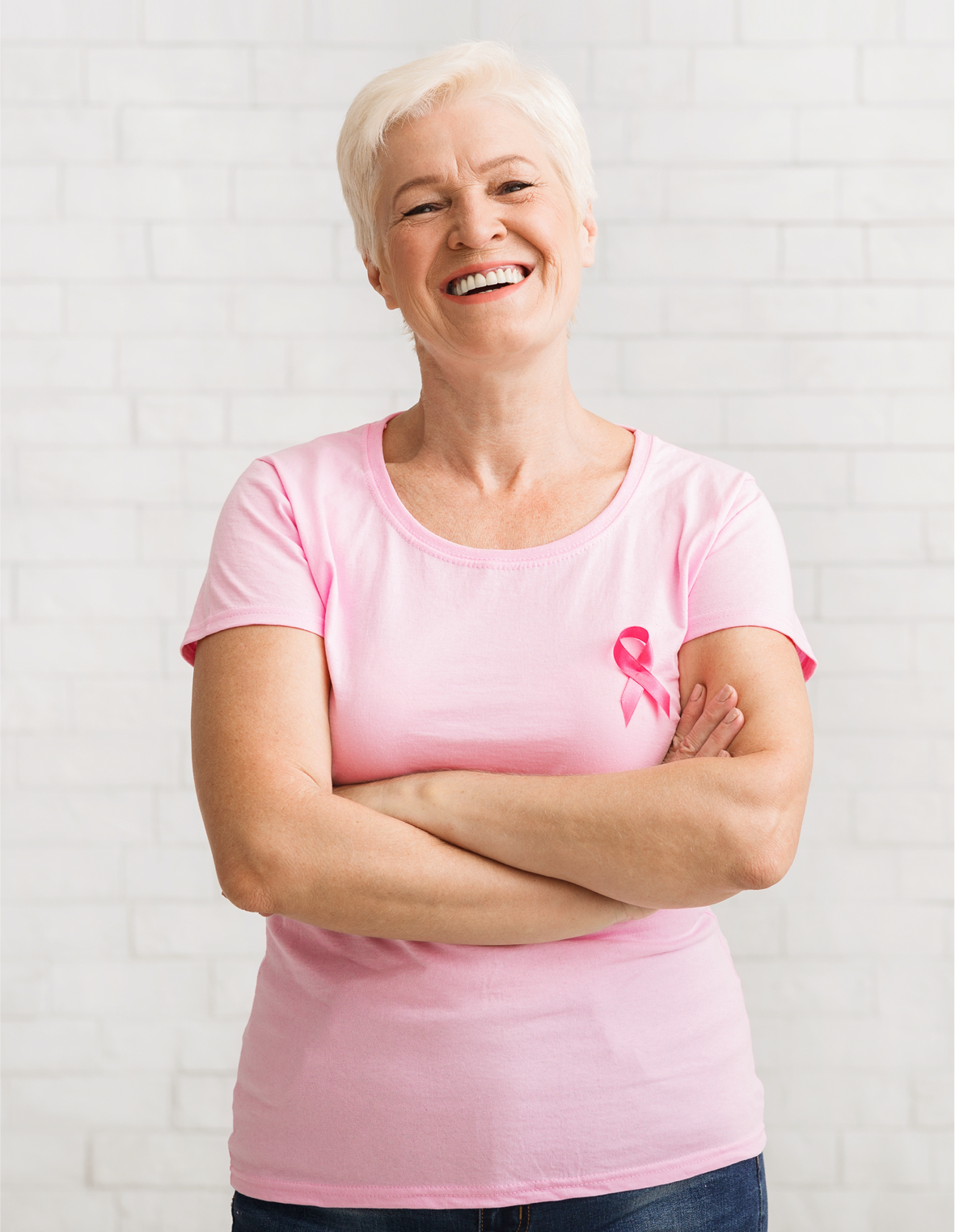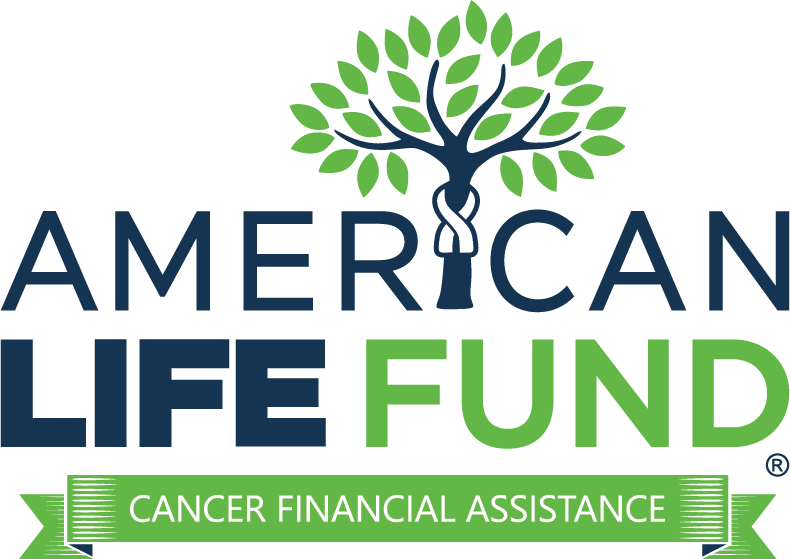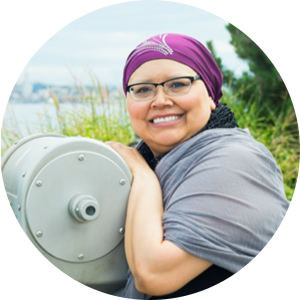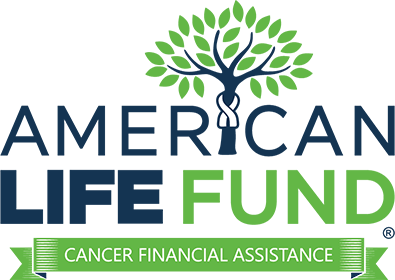Approximately 1 in every 8 women will be diagnosed with breast cancer in the United States alone. As a result, there is a significant need for financial assistance and support for those affected. With breast cancer care costs regularly rising, it is no surprise that those facing treatment are over 2.5 times more likely to file for bankruptcy than their counterparts. A diagnosis can be stressful enough by itself without considering the financial burden it can pose to the patient and their family. At American Life Fund we work regularly with breast cancer patients to help them financially. Below we have compiled this comprehensive list of financial assistance and support for breast cancer patients.
How To Find Financial Assistance For Breast Cancer Patients
Figuring out how to get financial help can feel overwhelming. But with the right support and information, you can find the assistance you need. Here are some steps to help you along the way:
- Connect with a Healthcare professional By discussing your financial concerns with your healthcare team. They often have insights into available resources and can direct you to the appropriate channels for financial assistance. In a survey of breast cancer patients, over 70% reported receiving valuable financial guidance from their healthcare providers.
- Contact Local Support Organizations Reach out to local cancer support organizations, community centers, and hospitals. These organizations are often well-connected and can provide information about local financial assistance programs and support groups tailored to breast cancer patients.
- Research Online Resources
The Internet can be a valuable tool for finding financial assistance. Look for reputable websites and forums dedicated to cancer support. In 2021, over 60% of breast cancer patients used online resources to gather information about financial assistance options. - Consult Social Workers
Many healthcare facilities have dedicated social workers who specialize in helping patients navigate the financial aspects of their treatment. They can assist in identifying potential sources of aid and guide you through the application process. - Check with Supportive Organizations
Reach out to national and international cancer support organizations. While we won’t list them here, these organizations often have comprehensive lists of financial assistance programs available for patients. They can offer guidance on where to look for help. - Attend Support Groups
Joining a support group for cancer patients can provide emotional support and valuable insights into available financial assistance programs. Many group members have personal experiences and can share information about resources they’ve accessed.
Review Medical Bills and Insurance
Carefully review your medical bills and insurance policies. It’s important to understand your coverage and make sure that you are not being billed for services or treatments that should be covered by insurance. Billing errors can add unnecessary financial strain.
Breast Cancer-Specific Financial Grants From Organizations
Several organizations provide financial aid for breast cancer patients, also known as breast cancer-specific grants. Some grants are open to all cancer types, while others focus specifically on breast cancer.
The best way to find these grants is by searching online or through local nonprofits. Try keywords like “breast cancer financial grants” or “cancer financial grants.” These grants are essentially free money with no strings attached.
Though finding available grants can take time, persistence pays off. Keep searching – help is out there.
- Breast Cancer Assistance Fund
- The Pink Fund
- Komen Treatment Assistance Program
- Jill’s Wish Foundation Fund (to be eligible, you must reside in one of the following areas: Louisville, KY; Southern, IN; Central Kentucky; Cincinnati, OH, or Michigan)
- Alliance in Reconstructive Surgery Fund (to be eligible, you must be a patient seeking financial help for cancer patients, including breast reconstruction after mastectomy)
- American Cancer Society Fund


Government Financial Assistance Programs
Government programs provide essential financial support and healthcare access for breast cancer patients. Here are some main options:
- Medicaid: This joint federal and state program offers healthcare coverage to low-income individuals, including breast cancer patients, helping cover medical expenses like doctor visits, hospital stays, and prescriptions. Eligibility varies by state.
- Social Security Disability Insurance (SSDI): SSDI provides disability benefits to those unable to work due to a condition like breast cancer. Eligibility depends on work history and the severity of the disability.
- Supplemental Security Income (SSI): SSI offers financial assistance to low-income individuals with disabilities, including breast cancer patients, helping cover basic living expenses.
- State-Specific Programs: Some states offer additional healthcare coverage or temporary disability benefits. Check with your state’s health department for details.
- Affordable Care Act (ACA) Marketplace: The ACA allows individuals to purchase health insurance with possible subsidies based on income. Special enrollment periods may be available for those recently diagnosed.
Accommodation During Breast Cancer Treatment
Treatment often requires a series of medical appointments, and, for some patients, traveling to specialized facilities becomes a necessary part of their journey. During this challenging time, securing suitable accommodation is of utmost importance. Fortunately, several organizations and programs are dedicated to providing support through temporary housing.
Two prominent options for temporary housing financial assistance are:
Ronald McDonald House Charities: This organization offers free or low-cost lodging primarily for pediatric cancer patients and their families. It’s worth noting that select locations may extend their support to adult cancer patients, providing a welcoming environment during their treatment.
American Cancer Society’s Hope Lodge: The Hope Lodge program, provided by the American Cancer Society, offers a home-like environment where cancer patients and their caregivers can stay for free. This generous offering significantly alleviates the challenges of finding affordable lodging during treatment.
These resources, along with others available, aim to ensure that patients and their families have access to a supportive and comforting place to stay when their focus should be on healing and recovery.
Utility Assistance
Covering basic expenses, like utility bills, can be tough during cancer treatment. Thankfully, there are programs that can help. Utility assistance can ease the financial load, allowing patients to focus on their health.
Programs like LIHEAP (Low Income Energy Assistance Program) offer support to low-income households, with contact details varying by state. Organizations like Cancer Horizons and The Pink Fund also provide help with utility payments. Additionally, Triple Step Toward the Cure offers emergency assistance, and Cleaning for a Reason provides free home cleanings for breast cancer patients.
Transportation Assistance
Getting to regular medical appointments can be challenging, especially when long distances are involved. Thankfully, several programs help patients with transportation costs.
The American Cancer Society’s Road to Recovery program offers free rides to and from treatment centers, thanks to volunteer drivers. For patients who drive themselves, organizations like Breast Cancer Angels and Tenaciously Teal provide gas gift cards. NeedyMeds can also help with travel expenses, and The Cancer Card Xchange periodically offers assistance.
Air Travel for Treatment
Some patients need to travel far for specialized care. Patient AirLift Services (PALS) connects patients with volunteer pilots for free air transportation, while the Corporate Angel Network (CAN) arranges free flights on corporate jets to treatment centers. These services help reduce the stress and costs of air travel, ensuring patients can access the care they need.
Financial Assistance For Child And Elder Care
When family members, such as children or elderly loved ones, rely on your care, attending treatment can present challenges. Support from family and friends can be invaluable during this time. Often, they are willing to help but may not know how to get involved. Here are programs that offer financial assistance:
- CancerCare Financial Assistance Program, provides limited financial assistance for child care during treatment.
- Komen Financial Assistance Program, offers limited financial assistance for child care during treatment.
These programs aim to ease the burden of child and elder care, allowing you to focus on your treatment while ensuring your loved ones receive the care and support they need.


Prescription & Treatment Assistance
With the cost of cancer medications rising, many patients feel concerned about how to afford treatment.
Programs like PPA (Partnerships for Prescription Assistance) and Rx Outreach can help by providing free money to breast cancer patients through free or reduced-cost prescriptions. Their easy-to-use online websites list multiple prescription assistance programs you may qualify for as a breast cancer patient.
Another resource offering financial assistance for patients is Needy Meds. Needy Meds offers a free Drug Discount Card, which provides up to 80% savings on prescription medications.
If your insurance does not cover a medication or has a high deductible, fear not–you can use your Drug Discount Card to help pay for prescriptions. The Medicine Assistance Tool can also help breast cancer patients locate additional resources for prescription assistance.
Low-Cost And Free Mammograms
Regular mammograms are essential for early breast cancer detection, but the cost can be a barrier for many individuals. Fortunately, several programs and organizations offer access to low-cost and free mammograms so that everyone can prioritize their breast health.
The NBCCEDP, funded by the Centers for Disease Control and Prevention (CDC), provides free or low-cost mammograms and cervical cancer screenings to eligible women who meet specific income and age criteria. This program aims to reach underserved populations and make sure breast cancer screenings are accessible to all.
Susan G. Komen offers a Breast Care Helpline to help individuals find local resources for low-cost or free mammograms. Their dedicated team can provide information and guidance on accessing screening services in your area.
Clinical Trials
Clinical trials are vital for advancing breast cancer research and treatment. By joining a trial, patients help improve care for others and may gain access to new therapies not yet widely available.
These trials are funded by government bodies, pharmaceutical companies, academic institutions, and nonprofits focused on breast cancer research.
For more information about breast cancer clinical trials, visit the National Cancer Institute’s website. You’ll find details on ongoing trials, how to participate, and the potential benefits of getting involved.
Health Insurance
Health insurance is essential for managing the costs of treatment. Here are a few important things to keep in mind:
- Know Your Coverage: Understand what your plan covers, including deductibles, copays, and which providers are in-network.
- Specialty Medications: Some treatments require specific coverage rules, so check with your insurance about these medications.
- Pre-Authorization: Make sure to get any necessary pre-authorizations for treatments to avoid unexpected costs.
- Appealing Denials: If coverage is denied, learn how to appeal. Your doctor can help with needed documents.
- Case Managers: Some insurance companies offer case managers who can guide you through the process and help with claims.
Being informed about your insurance can help ensure you get the support you need during treatment.
Life Insurance
Life insurance policies are typically associated with providing financial security to families after the policyholder’s passing, it’s worth noting that specific aspects of these policies can offer crucial financial assistance during challenging periods, such as when confronting a breast cancer diagnosis.
Some life insurance policies include an accelerated death benefits provision, enabling policyholders to access a portion of the death benefit. At the same time, they are alive, particularly when diagnosed with a critical illness like breast cancer.
Life Settlements
A life settlement is a financial arrangement in which a policyholder sells their life insurance policy to a third party for a lump sum. This lump sum typically exceeds the policy’s cash surrender value but falls short of the full death benefit. These funds can then cover various expenses incurred during breast cancer treatment.
Viatical Settlements
A viatical settlement can be a valuable financial solution for breast cancer patients facing expenses during their treatment. This option allows individuals with life insurance policies to sell their policies to a third party in exchange for a lump sum payment. The payment is typically larger than the policy’s cash surrender value but less than the full death benefit, providing immediate financial relief when needed most.
How It Works
- Eligibility: To qualify for a viatical settlement, the policyholder must meet specific criteria. These typically include having a life-threatening illness, such as Cancer, ALS, or another serious condition. Additionally, factors like the type of life insurance policy they hold and the policy amount also play a crucial role in determining eligibility.
- Evaluation: Life settlement providers assess the policyholder’s eligibility based on these factors.
- Settlement Process: Once deemed eligible, the policyholder receives an offer. Upon acceptance, the buyer takes over premium payments and receives the death benefit upon the seller’s death. In return, the policyholder receives a lump-sum cash payment.

Benefits for Policyholders
- Immediate Cash: Provides funds to cover living costs and medical expenses, such as urgent medical bills, prescription costs, and alternative treatments.
- Improved Quality of Life: Eases financial concerns, allowing policyholders to focus on treatments and experiences that promote well-being.
- Financial Relief: Reduces the burden of high insurance premiums by converting the policy into a lump sum cash payment.
If you’re considering a viatical settlement, it’s important to choose a trusted partner. American Life Fund specializes in helping cancer patients navigate the viatical settlement process with compassion and transparency. By working with them, you can turn your life insurance policy into funds for treatment, daily living expenses, or other needs, without added stress.
To learn more or see if this option is right for you, visit American Life Fund or call 877-261-0632. They offer personalized guidance and are ready to help you make an informed decision.
Frequently Asked Questions About Breast Cancer Financial Assistance
What Financial Assistance Is Available for Breast Cancer Patients?
Eligible breast cancer patients can access various financial assistance programs to help manage costs during treatment. These programs may provide direct financial assistance for essential expenses like health insurance premiums, prescription drugs, and prescription drug copayments. Patients may also be eligible for short-term financial aid to cover daily living expenses or unexpected costs during their treatment journey.
Additionally, programs like Social Security Disability Insurance (SSDI) and Supplemental Security Income (SSI) may offer support for those unable to work due to their condition.
Are There Free Items or Gift Boxes for Breast Cancer Patients?
Yes, many organizations offer free items or gift boxes for breast cancer patients. These packages often include comforting items such as blankets, skincare products, and other helpful tools to support patients during treatment. Some financial assistance programs also provide gift cards or products to help with everyday needs, like groceries or prescription drugs.
What Help Is Available for Health Insurance Costs?
Managing the cost of health insurance premiums during breast cancer treatment can be overwhelming. Fortunately, several financial assistance programs are available to help cover premiums, prescription drug copayments, and other healthcare-related expenses. Eligible breast cancer patients should contact their insurance provider or a cancer-specific organization to learn more about options for direct financial assistance or short-term financial aid.
Can Breast Cancer Patients Get Help with Prescription Drug Costs?
Yes, breast cancer patients often need help covering the cost of prescription drugs. Some financial assistance programs focus specifically on helping patients manage prescription drug co-payments, which can become burdensome during ongoing treatment. Many nonprofits and government programs offer direct financial assistance to help ease these costs, ensuring that patients can access the medication they need.
Does Stage 4 Breast Cancer Qualify for Disability Benefits?
Stage 4 (metastatic) breast cancer typically qualifies as a disabling condition under Social Security rules, allowing patients to apply for benefits such as Social Security Disability Insurance (SSDI) or Supplemental Security Income (SSI). This support can provide much-needed financial relief during a time when working may no longer be possible due to the disease’s progression.





